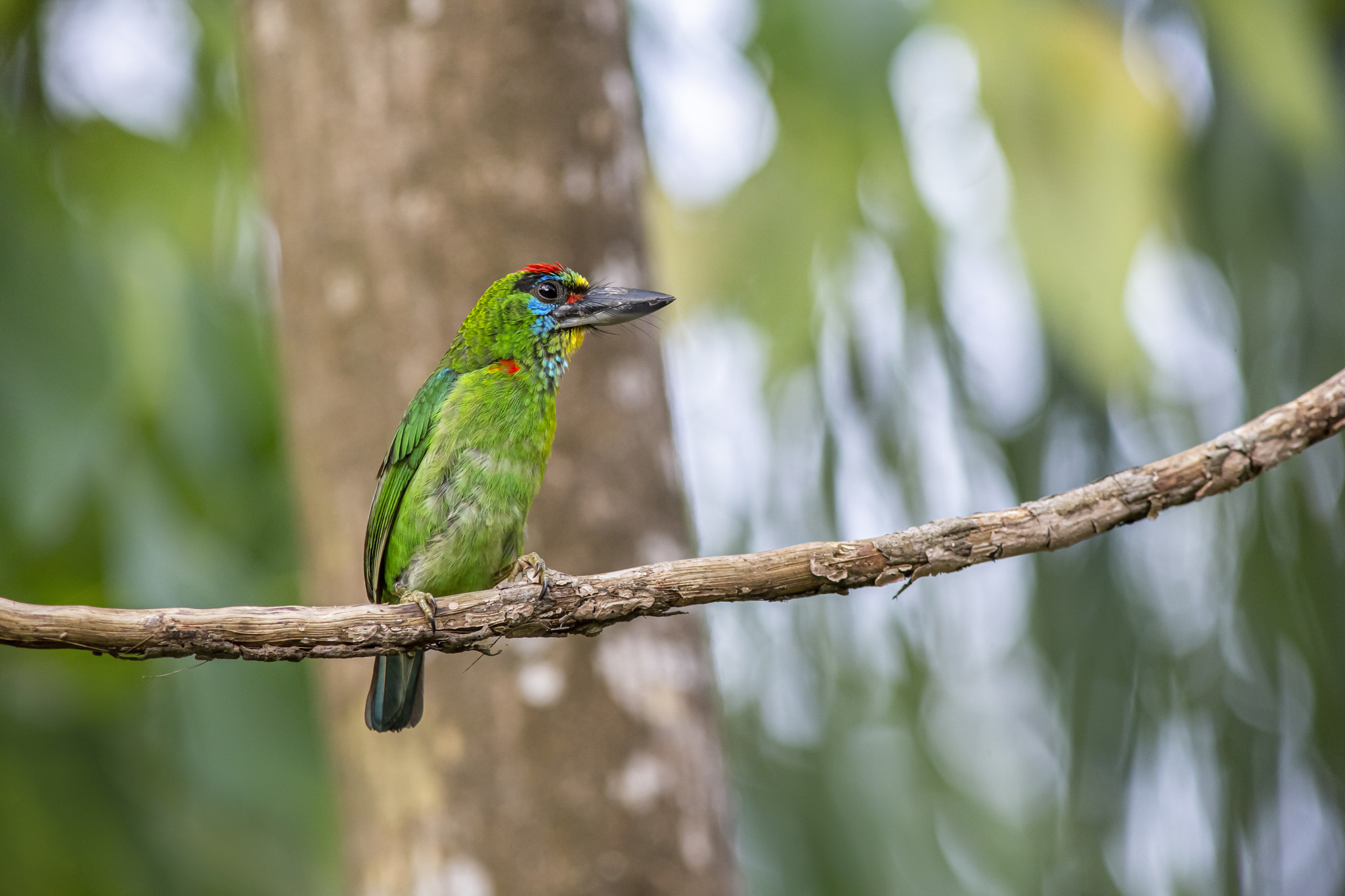The Red-throated Barbet (Megalaima mystacophanos) is a stunning bird species belonging to the barbet family, known for its vibrant plumage, distinctive call, and arboreal lifestyle. Found in the dense forests and woodlands of Southeast Asia, including countries like Myanmar, Thailand, Malaysia, and Indonesia, this charismatic bird enchants observers with its colorful appearance and lively behavior.
One of the most striking features of the Red-throated Barbet is its vibrant plumage, characterized by a combination of rich green, yellow, red, and black hues. Its namesake red throat patch adds a bold splash of color to its appearance, making it easily recognizable among the foliage of its forest habitat.
The Red-throated Barbet is a relatively small bird, with a stout body, short tail, and strong bill adapted for feeding on fruits, insects, and small invertebrates. It is often observed perched high in the canopy, where it forages for food among the leaves and branches, using its powerful bill to extract prey from crevices and cracks.
In addition to its colorful plumage, the Red-throated Barbet is known for its distinctive call, which consists of a series of melodious whistles and trills. These vocalizations are used for communication between individuals, as well as for territory defense and mate attraction during the breeding season.
During the breeding season, which typically occurs during the wet season, male Red-throated Barbets engage in elaborate courtship displays to attract mates. These displays may involve vocalizations, bill-wiping, and ritualized movements, culminating in the selection of a mate and the establishment of a nesting territory.
Nesting typically takes place in tree cavities, where the female Red-throated Barbet lays a clutch of eggs and incubates them until they hatch. Both parents participate in the care of the young, feeding them regurgitated food items and defending the nest from potential predators.
While the Red-throated Barbet is not considered globally threatened, it faces habitat loss and degradation due to deforestation and human encroachment in parts of its range. Conservation efforts aimed at protecting its forest habitat and raising awareness about its ecological importance are essential for ensuring the continued survival of this charismatic bird species.
Views: 350
Subscribe to the newsletter:
